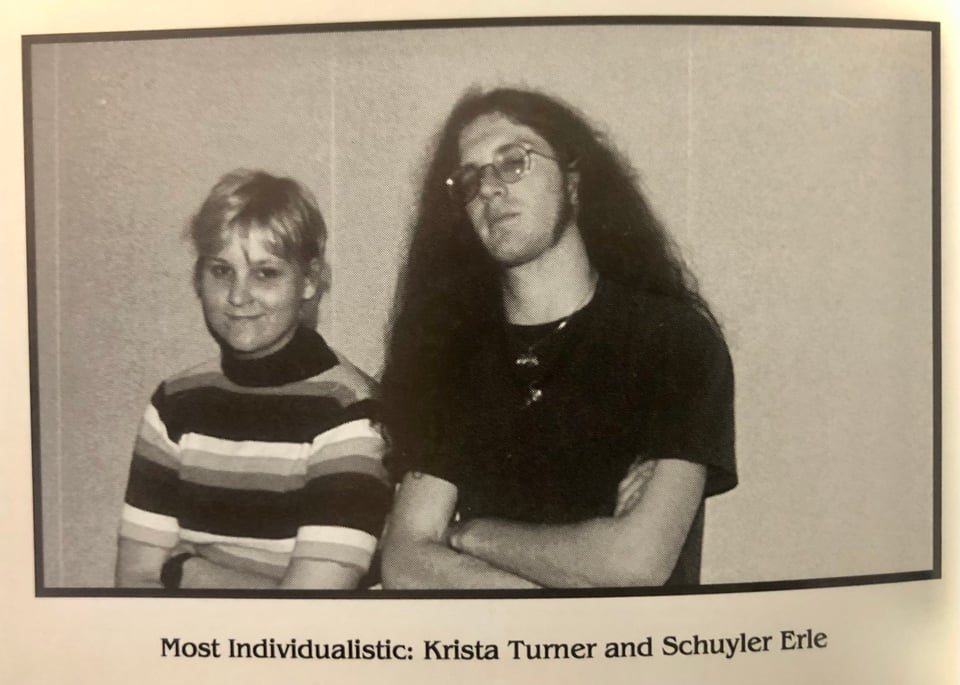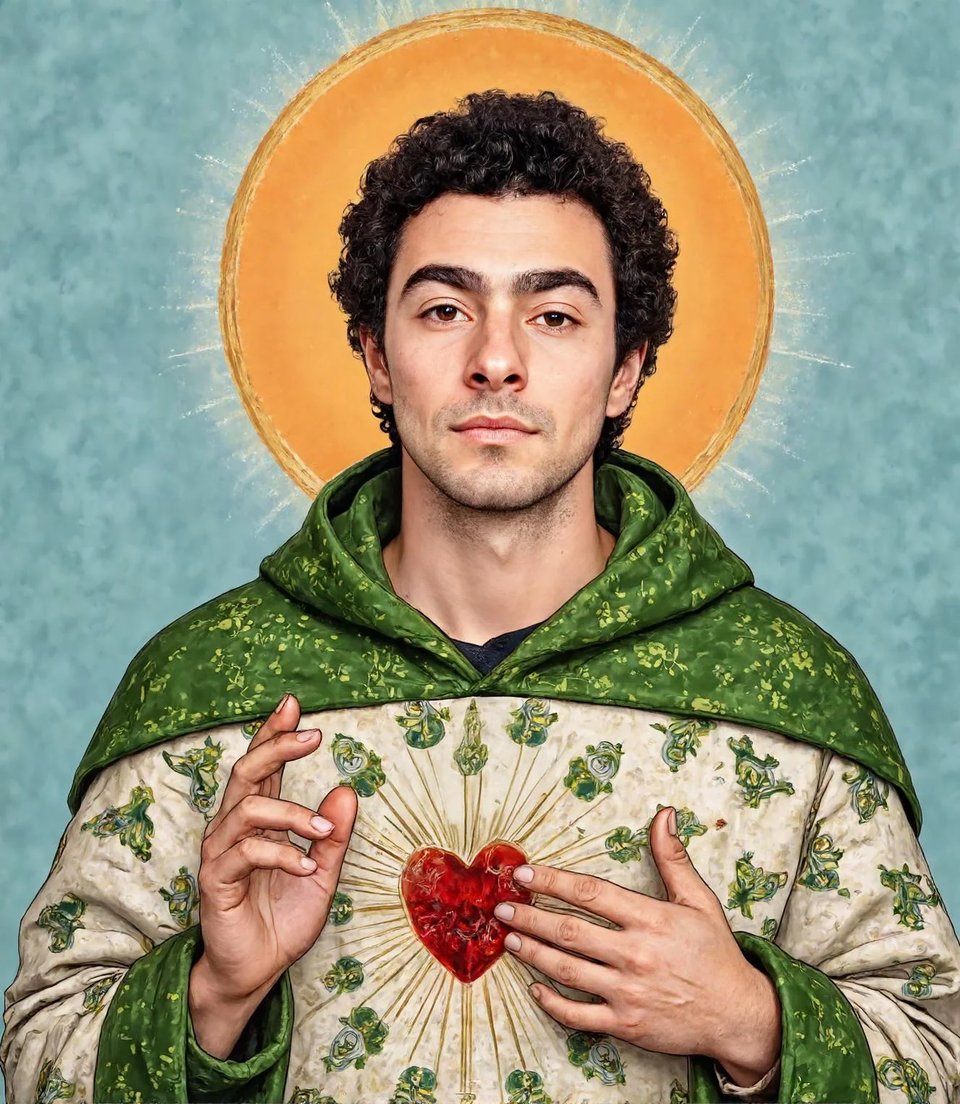Greetings, friends. Last time I attempted to honor the memory of Dr. Martin Luther King, Jr., by reflecting on some of his words and their relevance to our time. Today I will tell a story that would probably have made the Reverend Dr. King wince and shake his head in sadness.
As I have surely mentioned, I was not the most well-adjusted teenager. I came to public high school with a poor sense of social norms and not particularly good impulse control. I did have a handful of close friends, but I think most of my peers regarded me with bewilderment, when they regarded me at all. In my senior year, I was voted “most individualistic”... along with my friend Krista, may her memory be a blessing.

That all lay in the future. This was my freshman year; it was 1992, and I grew out my hair and wore flannel shirts and jeans torn at the knees. I idolized Nirvana and Pearl Jam and Alice in Chains and I listened to classic rock and an awful lot of Guns ‘n Roses. But I'd always been a big kid and had never really been a target for the physical kind of bullying.
The psychological kind was another story. To my surprise, the kids who picked me out as a target for taunting were the misfits of their own class, a year ahead of me. They wore a lot of black and studded leather and tees with logos for bands like KMFDM and Siouxsie and the Banshees. I thought they were cool, and I couldn’t understand why they seemed to dislike me.
I am reminded of the anecdote related by Vonnegut about the bigger monkey beating on the smaller monkey, who turns around and vents his frustration on the even smaller monkey.
The ringleader of the sophomore misfits was a blond oaf named Mert. The taunting started out as low-key muttering whenever I passed by in the school hallway, or pointed commentary to his friends when I happened to be nearby. Mert’s buddies began to follow suit.
Clearly I remember picking on the boy, seemed a harmless little fuck...
— Pearl Jam, "Jeremy"
Their favorite catchphrase — “Where’s your jacket?” — was an cryptic utterance which, when whispered or snarled repeatedly in one’s general direction, was apt to make one a bit anxious and paranoid.
Which was, after all, the point. A bully thrives on a sense of power over his target.
Someone later found out and related to me what this was all about. Apparently, one of them had witnessed my mother picking me up after school one day, half-shrieking as she sometimes would, inquiring after my outer garment. I didn’t remember the incident and still don’t know why they thought it was funny, but, let’s face it, my mom could be pretty embarrassing sometimes.
Regardless, the bullies were getting to me, and I knew they could tell, because they stepped up their antics. The hallway taunts grew in intensity. I started receiving handwritten notes insulting, for example, the appearance of the girl I was busy having an awkward high school romance with.
One day in the school cafeteria, while a couple hundred other kids were chattering away over lunch, Mert came over to my table, and deposited, of all things, a soggy cafeteria french fry on my shoulder.
I chucked the errant food item at Mert as he walked back to his seat. It bounced off his back but he failed to notice. He sat down while his buddies laughed. He shot me a wide grin from across the lunchroom.
I lost it. I gave Mert the “come on over” gesture, like Morpheus from The Matrix. He shrugged and pointed to himself in an exaggerated “who me?”
I nodded, and beckoned again, this time more emphatically. Mert got up and walked back to my table.
I stood up from my chair and let him have it. Decked him. Sucker punched him right there in the high school cafeteria. Gave him a fistful of knuckles across the left temple.
The cafeteria let out a roar, so loud that I doubt that Mert could hear me shouting in rage. He reeled, looking stunned. Cafeteria monitors raced in to separate us. The kids around us started chanting:
“Hit him again! Hit him again!”
I did not hit him again. I was escorted to the principal’s office. After being left to simmer for a while, I was informed that I was being sent home for the day, and that both Mert and I would be suspended for fighting. My father came to pick me up, grim-faced but taciturn.
When I had been suspended from school for prior misbehaviors, my parents were quite strict in the view that it was not a holiday, and that I would be denied all of my usual amusements and privileges for the duration.
Not so, this time. I stayed home from school but was not otherwise punished.
Mert’s buddies spent about a day trying to persuade me that honor demanded that I face off against him in the local park, like the duel from High Noon.
There is a side note here that says a lot about my father. He had been in the Army but was otherwise a little evasive about his youth. Concerned about retaliation by Mert and his pals, I asked him to show me what he knew about unarmed self-defense.
We went out in the back yard. My father squared me off against him at arm's length. Then, without warning, he twisted quickly at the waist, driving an elbow sharply into my solar plexus. I doubled over in pain.
"Remember," he said. "Any part of your body can be a weapon." He hauled me back to my feet.
"Okay," I groaned. "But did you have to teach me that particular way?"
"You won't forget it." He was right. I haven't.
Be that as it may, I needn't have been worried. Mert's pals quietly dropped the matter and neither he nor they ever bothered me again. I even became casual acquaintances with a couple of them later on.
The point of this winding story is this: Bullies satisfy a craving for power by seeking out weakness in others, causing pain, and getting a reaction.
A person will fight and even die for their pride, for their loved ones, for a principle. A bully will never do any of these things. Their own satisfaction is the only aim. A bully is a coward, and will give up bullying as soon as the costs of their actions outweigh the rewards.
To the old saw that violence never solves anything, I say humbug. I am not advocating rough schoolyard justice… But I will say that violence sure worked great for solving my problems in high school. My bully got a black eye for his efforts and he never came back for more.
In deference to the memory of Dr. King, violence is also rarely the ideal solution. Principled non-violence seeks to appeal to the humanity in one's opponent, to evoke a recognition of one's own humanity.
The thing I’ve been unable to reconcile with this view is that a sociopath is, by definition, pathologically incapable of recognizing and empathizing with the human feelings of others.
But even a sociopath can recognize that their actions can have costs to them personally, and act accordingly. I think that Gandhian non-violence works on sociopaths mainly by motivating others to restrain them.
What consequences restrain the billionaires in our society?
What consequences restrain a felon, against whom all charges and sentences have been dropped, and who is now president?
What consequences restrain a president who, by a perverse judicial ruling, has assurance that there will be no culpability for any actions he performs while in office?
What consequences restrain the Republican Party, now in control of all three branches of our Federal government?
What consequences restrain violent right-wing terrorists, now that the January 6th insurrectionists have been pardoned?
What consequences restrain the people in our society who, having been increasingly powerless, both economically and socially, now find perverse satisfaction in lashing out at the even smaller monkey?
In the words of Adam Serwer, the cruelty is the point.
There are no principles at work here. These people are all bullies, who use intimidation and harm against weaker souls for their own personal benefit. And bullies only stop when the consequences of their actions outweigh the rewards.
Who will deliver those consequences?
... Then he hit me with a surprise left, my jaw left hurting, dropped wide open ...
— Pearl Jam, "Jeremy"
I find telling the sudden elevation of Luigi Mangione to the status of American folk hero.

Mangione’s cold-blooded, broad-daylight assassination of the CEO of United Healthcare was a stark and very public exception to our society's de facto rule that the wealthy can act without consequence. Thompson may not have been a billionaire, but he was in the business of trading ordinary people’s comfort and welfare for the sake of corporate profit. For his own personal profit.
Clutch your pearls, if you like, but let’s do a quick privilege check. If you find Mangione’s actions objectionable, consider how you might feel after you’ve had your life decisively crushed by corporate greed.
I am not advocating rough vigilante justice. But I can’t escape the sense that violence is violence… regardless of whether it arrives inexorably but legally, as an insurance claim denial letter… or instantaneously and extra-legally, in the form of a 9mm semi-automatic round.
If you're still reading this, I send you my love.
Ceterum censeo vigilum imperdiet cessandam est.
Finally, I'd like to thank Mert, wherever he's gotten to, for his acts of cowardice and adolescent cruelty. They taught me a valuable lesson about what it means to be human.
You just read issue #83 of Greetings, friends.. You can also browse the full archives of this newsletter.
